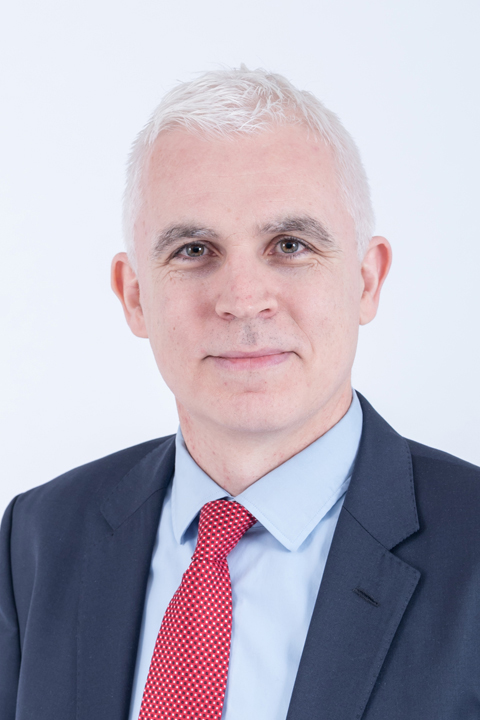
Professional indemnity insurance: Navigating through the storm
GRAEME TINNEY, CEO, Griffiths & Armour Europe DAC, outlines the conditions within the professional indemnity insurance market and what firms should be considering in advance of their next renewal.
Many firms have reported difficulties in sourcing professional indemnity (PI) Insurance. We’ve frequently spoken about the insurance market cycle and the specific challenges for construction PI. When the market is well capitalised, insurance cover is readily available, but as capital drains away, there can be a shortage of supply with no concurrent reduction in demand.
Last year saw the worst market contraction for over 20 years, and I don’t think we can over-emphasise the impact that has had on consultants and contractors. Premiums are certainly increasing, but perhaps even more significantly, we are also regularly encountering firms who have been unable to source insurance protection or to maintain the specification of cover they previously held.
Therefore, there is the prospect that some firms may now be operating without cover, and that has much broader implications for employers and other members of the design and construction team.
Demand and supply
The challenges firms trying to source PI insurance face are down to the issue of demand and supply. There simply is not enough capacity within the PI market to deal with the volume or scale of demand, whether it’s the number of firms seeking insurance or the amount of cover they are looking to hold. Those insurers remaining in the market are also subject to increased internal scrutiny, which is reflected in the:
– Number and percentage of risks they are able to underwrite
– Limits of indemnity they are in a position to support
– Levels of premium they are required to charge
– Restrictions in cover they are seeking (or are required) to impose
– Amount of risk (by way of Policy Excess) they require policyholders to retain.
While the local market has recently seen the arrival of some new capital, capacity problems seem set to continue, and firms should be prepared for the fact that their PI renewal may prove to be their most difficult negotiation in 2021.
A global issue
It should be noted that these challenges are not particular to construction or indeed Ireland.
Many of these issues are global, and as a subset of the broader PI market, construction PI has always presented a particular set of challenges. Liabilities are notoriously long-tail, and quite often, a very small number of (large) claims can determine the performance of an insurer’s portfolio or the market as a whole. This is not peculiar to Ireland, but there is increased volatility, given the relative scale of the local market, the impact of larger claims and the risk of aggregation, where insurers may be insuring several parties on the same project.
Historically, Ireland has also been reliant upon UK insurers to provide capacity. Brexit and the removal of “passporting” rights have presented some challenges and a further reduction in supply, but we also need to look at underlying causes. Sometimes Ireland is seen by insurers as “a difficult place to do business”. This can be attributed to:
– The time and costs associated with defending claims
– The potential for multi-party actions
– The legacy of the ‘Celtic Tiger’ years, etc.
Added to that is a perceived “risk dumping” mentality, with certain employers seemingly determined to force unreasonable levels of risk down the supply chain. Ultimately, that feeds into a negative perception of the liability landscape within construction, at a time in the insurance cycle when it is in the interests of all parties to be creating conditions that encourage insurer appetite.
Addressing the issues
People will be familiar with the broader actions being taken by the government around insurance reform. I am also encouraged by some of the conversations that are now taking place around public sector procurement.
But what we need is very clear action to address the risk-versus-reward imbalance. It is something construction industry bodies have been pushing for. I am hopeful that we will begin to see the introduction of a more sustainable liability and insurance regime with a more equitable apportionment of risk between the client and their design and construction team.
In the meantime, firms should seriously consider putting PI insurance at the centre of their decision making. For the next prospective client, the next project, the next contract they are considering, they should be looking at what are the associated risks, can they be managed, and how are those risks going to be viewed when it comes to the renewal of their PI insurance? These are the questions firms need to be asking and, particularly so, if those opportunities are in sectors that might be regarded as higher risk.
Six things to consider when preparing for a professional indemnity insurance renewal
The PI market is going to remain challenging for the foreseeable future. To some extent, the supply of capital shortage means that firms are competing for insurers to take on their risk.
1. Presenting risk
Quite often, a failure to secure a favourable outcome on renewal is about how the risk has been presented to insurers. Firms should not underestimate the strength of a well-crafted submission identifying particular risk features their business presents, constructing a narrative around why those risks have been identified and explaining to insurers how they have been understood and mitigated. If you can tell a good story about how you run your business, you need to make sure that your insurer hears it from a source that they respect and trust.
2. Engage early
Early engagement with your broker is vital to allow adequate time to deal with issues that may arise throughout the renewal process. If your existing insurer has chosen to withdraw from your sector or is only prepared to offer aggregated coverage, the earlier you know about this, the more time you have to explore alternative solutions. Even smaller firms should engage with their broker at least two months in advance to ensure there is sufficient time to navigate problems that could well arise. Much larger firms should be engaging as much as six months ahead of a renewal date.
3. More information needed
Insurers are requesting far more information than ever before – be prepared to answer additional questions about your business.
4. Remote working issue
With the implementation of lockdown and most practices working from home, we have all had to adapt our working practices. Insurers will want to understand how risk management procedures continue to be implemented in this changed environment. How do you go about the QA process, who signs off on work undertaken by more junior staff, etc.?
5. Contractual risk management
Insurers will also want to understand your contractual risk management procedures: do you use them; do you use industry-standard documents? If not, are you successful in managing liability by way of financial caps and exclusions?
6. Post claim reviews
Those who have been unfortunate enough to be involved in a claim, prepare to be under more scrutiny. A post-claim review may be required by insurers, but even where it isn’t, drawing up a “lessons learned” document can be a highly effective way to show that you have actively taken steps to avoid similar issues or situations in the future.
A raging storm
Some commentators have spoken of a storm raging in the PI insurance market. We perhaps need to think about the causes of the storm. As brokers, we cannot control that storm, but we can help firms to navigate their way through it. Over the past year, we have come to the assistance of many firms, but time has been key to achieving better outcomes: In managing the renewal of PI insurance, we need to:
- Understand the particular requirements of a firm
- Prepare a comprehensive submission for insurers
- Explore the alternatives to establish an engagement plan
- Set out the reasons for our recommendations.
About Griffiths & Armour
If firms have concerns regarding their existing PI arrangements, Griffiths & Armour would be more than happy to try to assist, but the advice is “don’t wait until renewal is upon you, get in touch early and let’s make sure we have sufficient time to help you achieve the best possible outcome’.
Graeme Tinney is the CEO of Griffiths & Armour Europe DAC, specialist professional indemnity insurance brokers and risk managers that look after the interests of approximately 400 construction consultancy firms in Ireland and act as PI insurance advisers to ACEI and Engineers Ireland.
If you have an enquiry about PI insurance or related matters, email Graeme Tinney at
gtinney@griffithsandarmour.com or visit www.griffithsandarmour.com
Griffiths & Armour Europe DAC is regulated by the Central Bank of Ireland.


